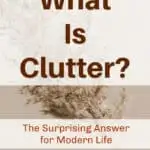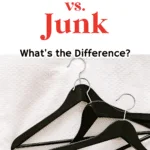We all talk about clutter and how we need to get rid of it. But what is clutter, and why is it so powerful that we feel like it has control over us, instead of us having control over it?
Everyone can agree that clutter can have a profound impact on our well-being, especially your mental health, so let’s figure out what this problem really is and how to get rid of it.
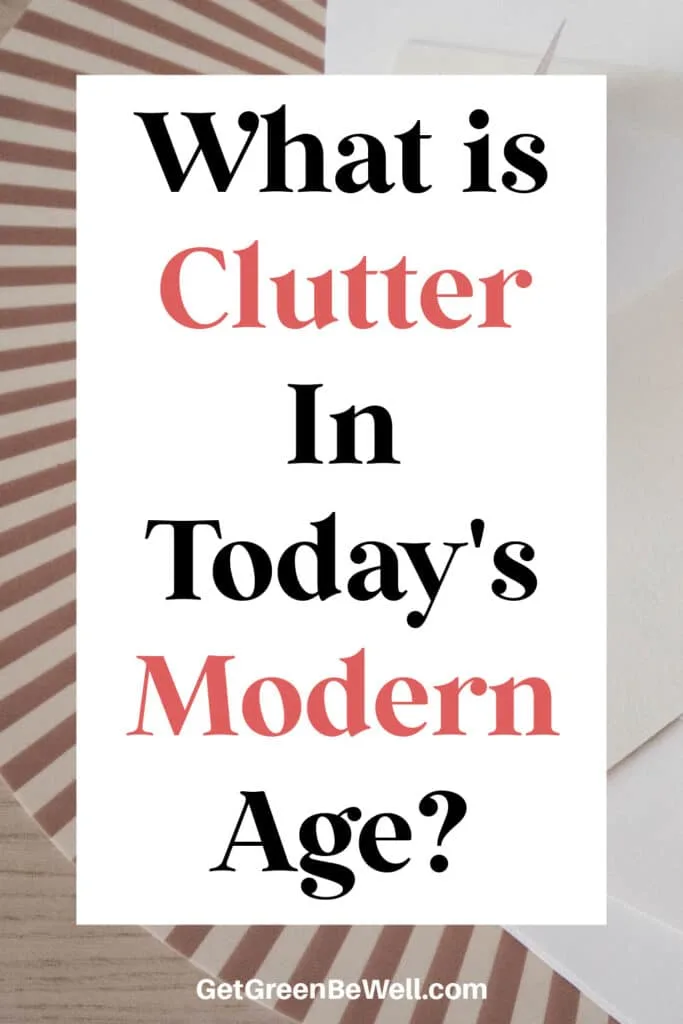
The Meaning of Clutter
Look up the definition of clutter in a dictionary and this is what you will find:
“crowd something untidily”
“a collection of things lying about in an untidy mass”
“to run in disorder”
The accepted version of clutter in years past has always been too much stuff that you don’t need. But in today’s day and age, the meaning of clutter needs to be redefined for our modern ways of living.
Clutter is more than just a collection of misplaced objects. It is a visual and mental overload that can affect us on multiple levels.
At its core, clutter represents a disarray of our physical and mental spaces, creating chaos that can be challenging to navigate.
It is not just a pile of clothes or an overfilled junk drawer. Clutter can be too much of something good, like too many Stanley cups. It can be too many photos on your phone that haven’t been organized yet.
Related Post: Minimalism Vs. Maximalism
Clutter can even be negative thoughts about how you will never own a home and your financial situation is so bad that it can never get better. Those thoughts are clutter because they hide the positive thoughts that you can have.
Clutter is not just physical, it can be mental and spiritual, as well. Organizing your thoughts and beliefs, and limiting the thoughts that come into your brain, is just as important as decluttering that sock drawer.
Related Post: Beginner Tips for a Minimalist Lifestyle
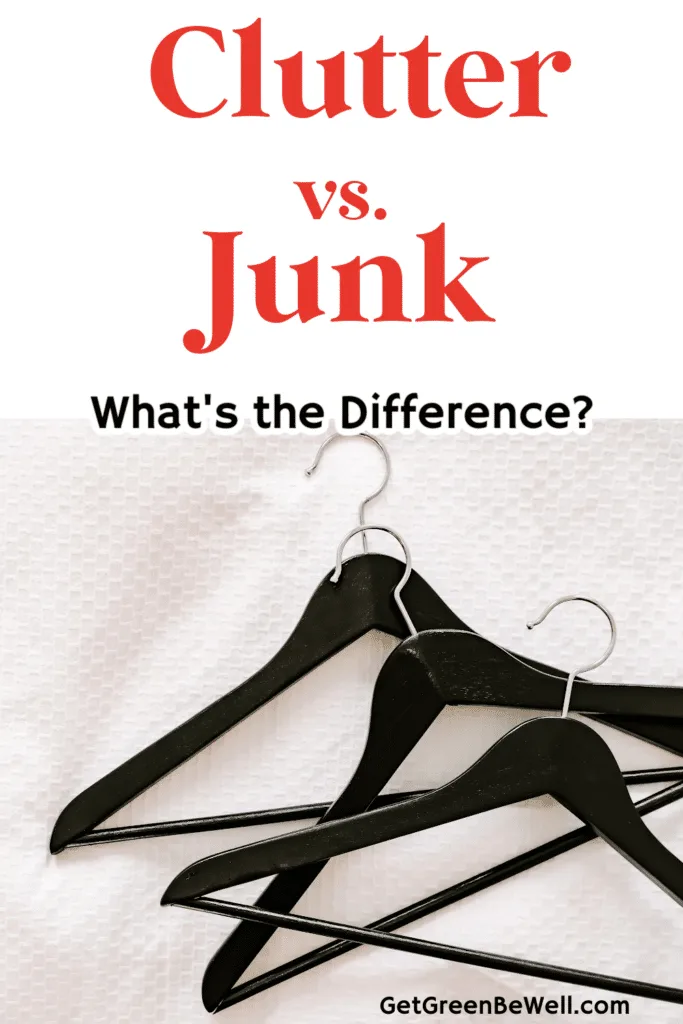
Examples of Clutter
To truly understand the difference between clutter and junk, here are some real life examples:
Kitchen Drawer – Your drawers are packed with utensils, rubber bands, expired coupons, and the odd screwdriver. Opening it is like peering into a chaotic abyss where finding a simple pen feels like an archaeological expedition.
Clutter would be having the utensils that you use disorganized and overflowing in one drawer where you can’t find them. Junk would be keeping the old coupons, pens that no longer work, and twisty ties from bread bags that you haven’t used in three years.
Related Post: Check out my Minimalist Kitchen Essentials List to stop the clutter!
Closet – Your clothes are thrown in the closet and you can’t find your favorite sweater or pair of boots that you want to wear.
Clutter is having all of your clothing thrown in a pile so that you can’t find anything. You need to get a better organizational system of hanging up your clothes or folding them to put in a drawer. Junk would be keeping clothes that you haven’t worn in two years or clothing that is stained and ripped and can’t be easily repaired.
Paperwork – We all have piles of mail, catalogs, sales ads and magazines to go through. Paperwork is one of the biggest sources of clutter that there is!
A stack of unpaid bills and correspondence that needs to be taken care of is clutter. Junk would be the sales ads that have already expired or catalogs that you never order from.
Related Post: Easy Minimalist Habits You Can Start Today
Email Inbox – I personally get 50-200 emails PER DAY! It’s insane and it can be very easy to skip a day of deleting emails and suddenly have a cluttered inbox. Opening up your email and seeing hundreds of unread messages can be mentally and emotionally stressful. Just think about your gut reaction when you open your email and see so many things to respond to.
Clutter would be not organizing emails into sub-folders and not responding to emails that need a response. Junk would be all of the sales emails and spam that just need to be deleted without a response.
Social Media – If you have a Facebook, Instagram, or TikTok account, it is really easy to be overwhelmed with the amount of posts that come through on your social media. It is a never ending scroll that can hook you into wasting your time for hours.
Clutter would be feeling that you need to look at everyone’s posts, even the people that you half-heartedly follow. You can create a folder or choose notifications of only a few accounts that you really love. Junk would be continuing to follow someone even though you don’t care about their information anymore or their posts make you feel less than worthy or anger you.
Try our Social Media Detox and see how it feels to escape the constant scrolling!
Friends and Social Life – Spending too much time doing things you don’t want to do is a form of clutter, as well. Too many social engagements and demands on your time is just as stressful as piles of laundry.
Clutter is saying yes to every invitation or get together without realizing how it will impact your mental health or important daily tasks. Junk is saying yes to invitations because you don’t want to hurt someone’s feelings, getting together is a habit that you don’t even enjoy anymore, or you are only going out to increase your popularity or to be seen with the right people.
Want more examples? Check out these examples of downsizing vs. minimalism for decluttering ideas.
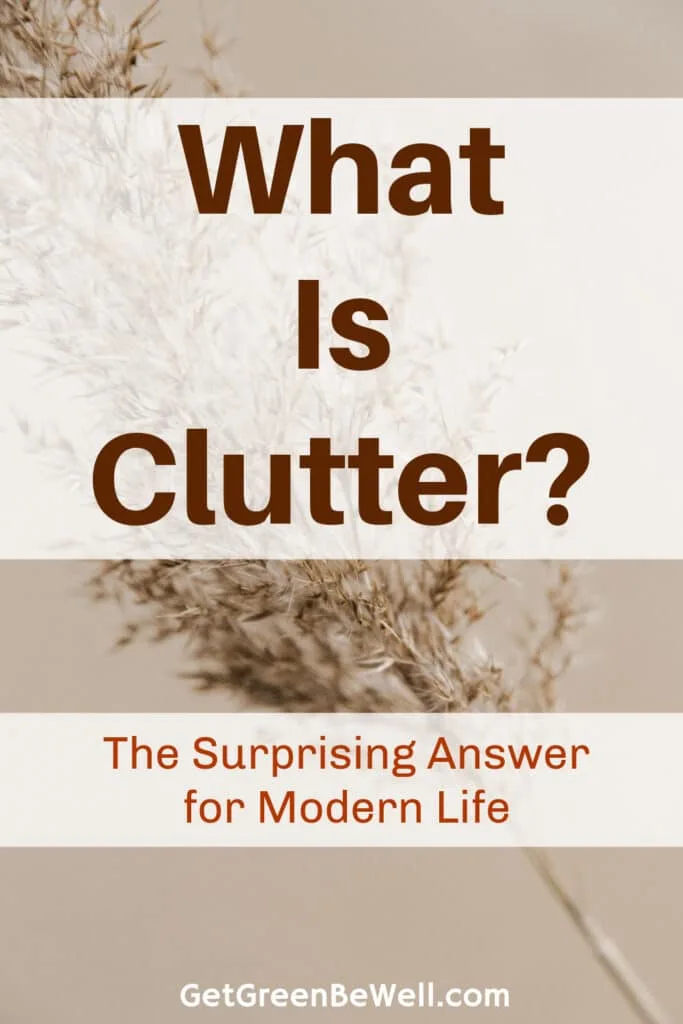
Where Does Clutter Come From?
You are not a bad person if you realize you have a lot of clutter in your life! Keep that in mind and do not feel guilty or admonish yourself.
While many people like to put the blame for clutter on a person because you are not disciplined enough to stay organized, I disagree.
Clutter can be a lack of organization, but it can also be a manifestation of just not having enough time in your life to get things done.
Personally, I have many days with health challenges where I can’t get off the couch or I have such brain fog that I can’t even make a decision about a piece of paper. I am not about to admonish myself for having a cluttered home when I’m just barely able to get by.
There are times in your life when your schedule is just too busy to stay organized. We all only have so much time in a day and you should fill your days with what brings you joy, not reduce your schedule so that you can have a clean house.
So if you have a week of parties and celebrations and family get togethers with lots of cooking and gift wrapping that needs to be done, chances are that your email inbox will get cluttered, you’ll need to organize the photos on your phone and your laundry has piled up into a mountain the size of Kilimanjaro.
That’s okay. And, quite honestly, that’s a really good reason to have clutter.
Clutter can also accumulate after you realize that you no longer want something in your life. So while those seed catalogs that pile up in the winter to look through and plan your garden for the Spring are a welcome resource, they can suddenly become clutter in June when you are no longer planning your garden but are in the middle of harvest.
These examples are seasons of life. If you are dealing with clutter on a daily basis for years, however, then that comes from a mindset that needs to be changed.
Clutter is a problem with indecision. To conquer clutter you need to decide where to put things, how to get organized, and what you do and don’t need (or want) in your life.
If you struggle with clutter and feel anxiety because of it, there may be a larger problem of not wanting to make decisions and not having a clear direction of your goals.
If you want to live a more organized life but feel like clutter is keeping you from your goal, then the problem is the mindset of why you are keeping the things cluttering up your life, because you have already established a goal of being more organized.
Ready to start decluttering and get organized? Start with decluttering your bedroom to get a good night’s sleep.
Then see my 30 Day Challenge to Declutter and Detox Your Home.
